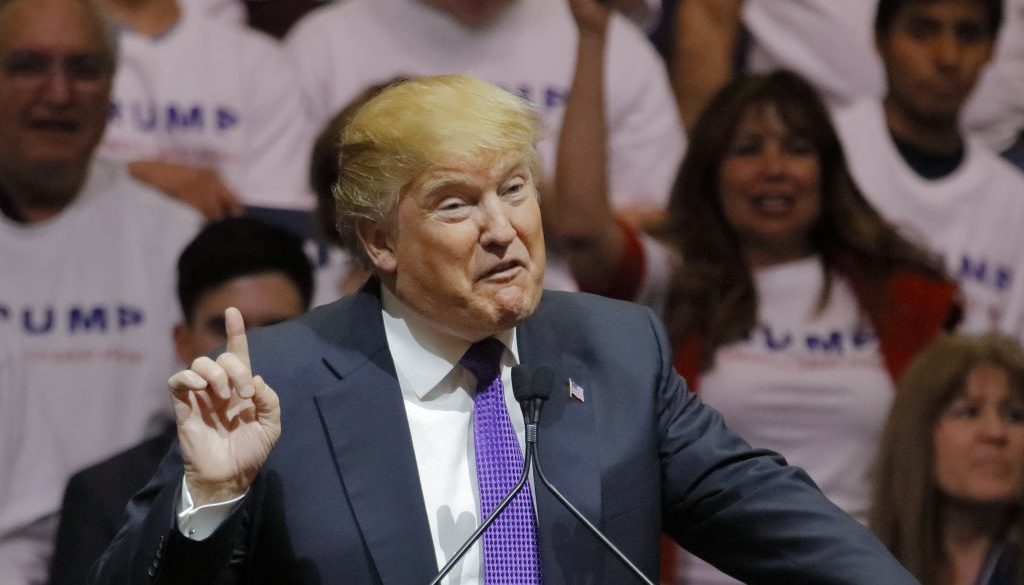Health Risks, Park Vandalism Multiply as Trump’s Shutdown Persists
By John Bowman, Natural Resources Defense Council
As President Donald Trump’s government shutdown reaches three weeks in length, the risks to Americans’ health and to our treasured federal lands are rising daily. Meanwhile, federal scientists are applying for unemployment assistance, and the U.S. economy loses $1.2 billion each week the government is shuttered.
Any shutdown exacts a toll, but with this one poised to set an ignominious record in length, the effects are especially devastating.
Consider food safety.
With more than 40 percent of its 17,000 employees forced to stay home, the Food and Drug Administration halted most routine inspections at food processing facilities. While FDA says it continues to inspect imports and “high-risk” foods like seafood and infant formula, we have seen in recent years that items as innocuous as spinach or Romaine lettuce can turn toxic.
An outbreak from listeria or E. coli hasn’t happened—yet. How long do we want to press our luck?

Photo by ja ma on Unsplash
At the Environmental Protection Agency, 600 pollution inspectors have been furloughed, the New York Times reports. Those scientists, engineers and analysts are responsible for detecting violations that endanger human health, the Times says. These workers are forced to sit at home instead of measuring the mercury coming out of the smokestack at a cement plant, examining the discharge pipe to test for toxins leaking into the town’s water supply or looking at the explosion risks at the local fertilizer facility.
Angela McFadden, a furloughed EPA water inspector, told the newspaper that companies might not mean to pollute, but, “I always find violations, even if it’s not things that are illegal.”
For the rest of us, “violations” mean more pollution in the air we breathe and water we drink.
At our national parks, campgrounds are shuttered, roads unplowed, and public activities unmonitored by rangers forced to stay away from the work they love.
At Joshua Tree National Park, the iconic Joshua trees have been cut down by marauding visitors so they could drive off road into the remote wilderness.
“There are about a dozen instances of extensive vehicle traffic off roads and in some cases into wilderness,” Superintendent David Smith said, according to National Parks Traveler.

Photo by Christoph Schulz on Unsplash
Nationwide the 800,000 federal workers—and tens of thousands of federal contractors—not getting a paycheck are also facing immediate, tangible impacts.
“Today I had to apply for unemployment,” Leslie Rissler, an evolutionary biologist at the National Science Federation, tweeted. “This is a ridiculous shutdown unnecessarily affecting thousands of federal employees and families. Wishing all of them, and this country, better days ahead.”
In Washington, D.C. alone, 3,745 federal workers and an estimated 822 federal contractors have applied for unemployment insurance, a reporter for Huffington Post tweeted on Wednesday.
Meanwhile the costs are adding up: The White House’s own economic advisor puts the cost to the U.S. economy at $1.2 billion for each week of a shutdown, while Fitch Ratings has threatened to downgrade the U.S. debt if the shutdown persists, Politico reports.
Despite all that, the Trump administration has ensured that there’s one American entity unaffected by the shutdown: the oil industry.
“To this point, we have not seen any major effects of the shutdown on this industry,” Mike Sommers, president of the American Petroleum Institute told Bloomberg News.
In fact, while the Department of Interior has scuttled public hearings on offshore wind farms, its Bureau of Land Management has accepted 22 new drilling permit applications since the start of the shutdown, and officials said they did not anticipate any delays in the processing of either permit applications or requests for inspections, the Washington Post reported.
At the same time, Interior is not even accepting other filings, such as public records requests, the newspaper noted dryly.
I said it before, and I’ll say it again: Our federal employees should be doing the work they were called to do for the American people, not forced to wait in line to get unemployment insurance. We need them out there inspecting our lettuce and the water treatment plant. We need them conducting research on diseases and protecting our national parks from vandals. We need our government to do the work we expect of it—and need from it.
It’s time for President Trump to drop this my-way-or-the-highway approach and allow Congress to fund our government.

